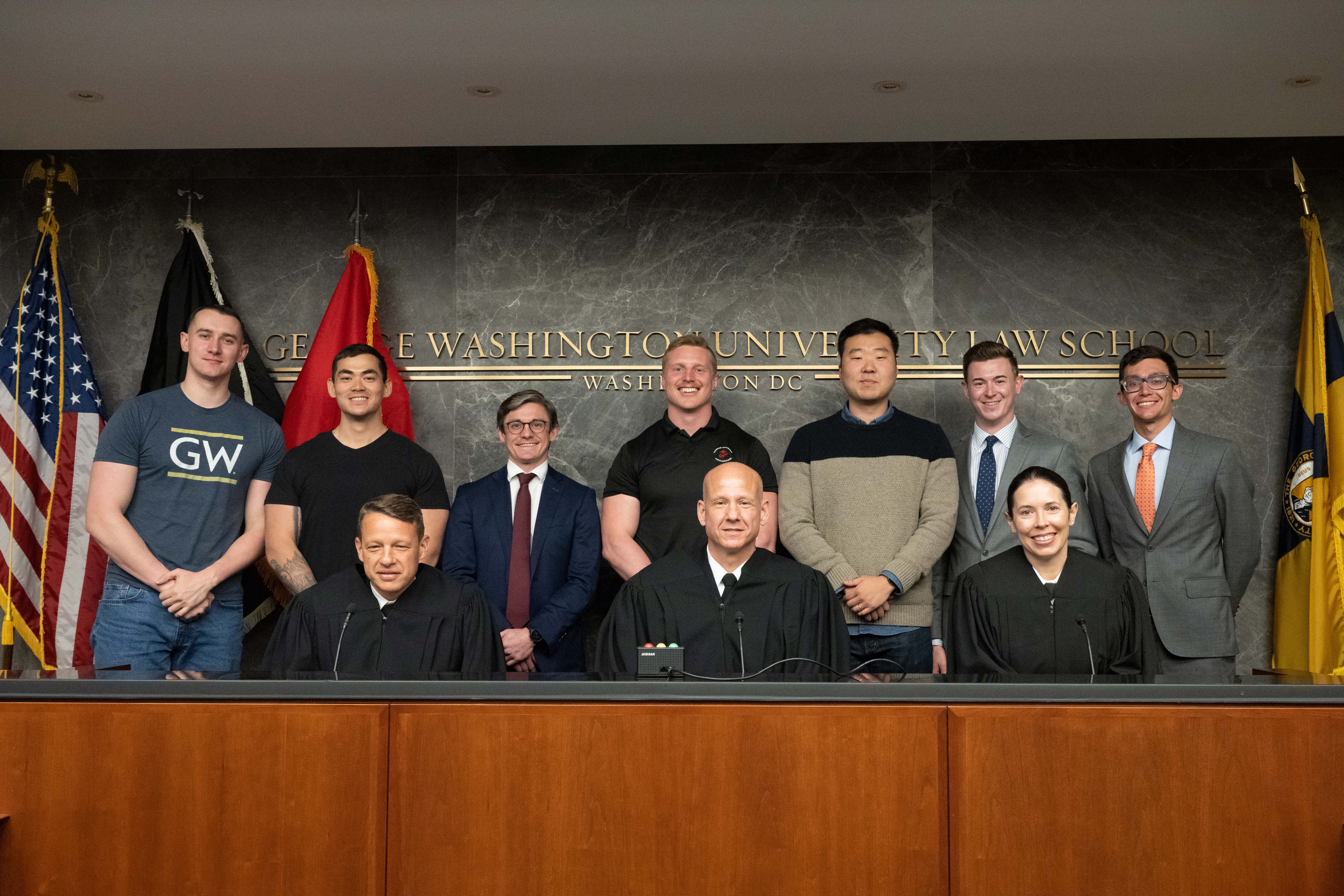The GW Law Military Law Society and National Security Law Association hosted the Army Court of Criminal Appeals for an oral argument, followed by a question and answer session and reception. Chief Judge (Brigadier General) George R. Smawley presided over the hearing. Military criminal appellate courts have held annual oral argument hearings at GW Law, as part of their public outreach programs, since 2009.
The court heard arguments in the case of United States v. Steele. Appellant, Master Sergeant (E-8) Andrew D. Steele, was convicted by a military judge, sitting as a general court-martial, pursuant to his pleas, of one specification of violating a lawful general order and one specification of fraternization. Contrary to his pleas, the military judge also convicted him of one specification of indecent exposure and one specification of disorderly conduct. The military judge sentenced appellant to be reduced to the grade of E-3 and discharged from the service with a bad-conduct discharge, and the convening authority approved the findings and sentence as adjudged. The Army Court of Criminal Appeals affirmed the findings of guilty but set aside the sentence because the government could not provide a verbatim transcript. The court authorized a sentence rehearing and a military panel with enlisted representation subsequently sentenced appellant to be reduced to the grade of E-5, and the convening authority approved the sentence as adjudged.
Three issues were raised on appeal. The first issue asked whether the Army Court of Criminal Appeals has discretion to consider an additional assignment of error challenging the findings of guilty when the appellant failed to raise it during his first appeal before the court and the court only remanded appellant’s case for a sentencing rehearing. Issue two asked whether, assuming the court does have discretion to consider the additional assignment of error, it should exercise that discretion in appellant’s case. The final issue asked whether indecent exposure, Article 120c, Uniform Code of Military Justice, is unconstitutionally vague.
After the arguments concluded, students in the audience had the opportunity to ask questions. A reception followed and students were able to network with the judges and recruiting officers from all the military services in attendance.


